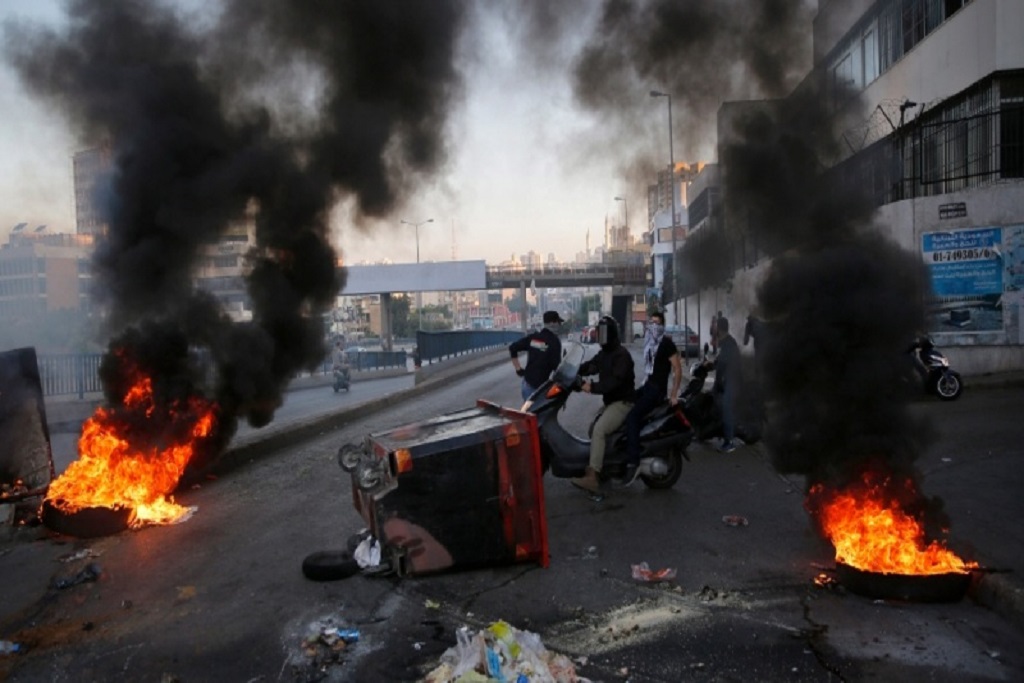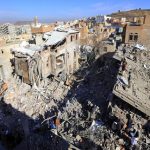People have taken to streets in Lebanese cities to protest against the deteriorating living conditions in the country located along the Mediterranean Sea.
Faraan: Protesters, some of them burning tires, blocked roads in central Beirut, Tripoli in northern Lebanon, and the southern city of Sidon on Monday.
The protesters demanded better living conditions amid the ongoing economic crisis.
The country’s economic meltdown, which began in 2019, has propelled more than three quarters of the population into poverty and the local currency has plummeted by over 90%.
According to the United Nations, four in five Lebanese are now considered poor.
A political deadlock in the country has compounded the economic crisis.
Lebanon’s government has been in paralysis since a row started during a cabinet meeting over changing the judge leading an investigation into a fatal explosion at Beirut port in August last year. The cabinet has not convened since then. The cabinet’s main focus was on a revival of talks with the International Monetary Fund, needed to unblock foreign aid to the country.
The World Bank estimates it may take Lebanon nearly two decades to recover its pre-crisis per capita GDP.
In the meantime, government subsidies have been cut back on almost all items, including essential commodities such as petrol, diesel fuel and cooking gas, plus medicine.
Filling a vehicle’s fuel tank in Lebanon now costs more than the minimum monthly wage.
To make matters worse, the Lebanese pound sank to new lows in past days.
According to websites monitoring the black market rate last week, the pound was trading at 25,000 to the dollar, or nearly 17 times less than its official peg value of 1,500.
The new record, topping a previous low of more than 24,000 earlier that week, adds to the troubles of the newly-formed Lebanese government.
With the currency losing more than 90 percent of its value in two years on the black market, the purchasing power of Lebanese is plummeting, and the minimum monthly wage of 675,000 pounds is now worth just $27.
The economic and political crisis, which experts say is caused by some foreign powers’ interference in the country’s affairs, plunged Lebanon’s population into poverty. Political pundits in Lebanon blame harsh US sanctions slapped against the hapless Lebanese nation as the cause of the crisis.










